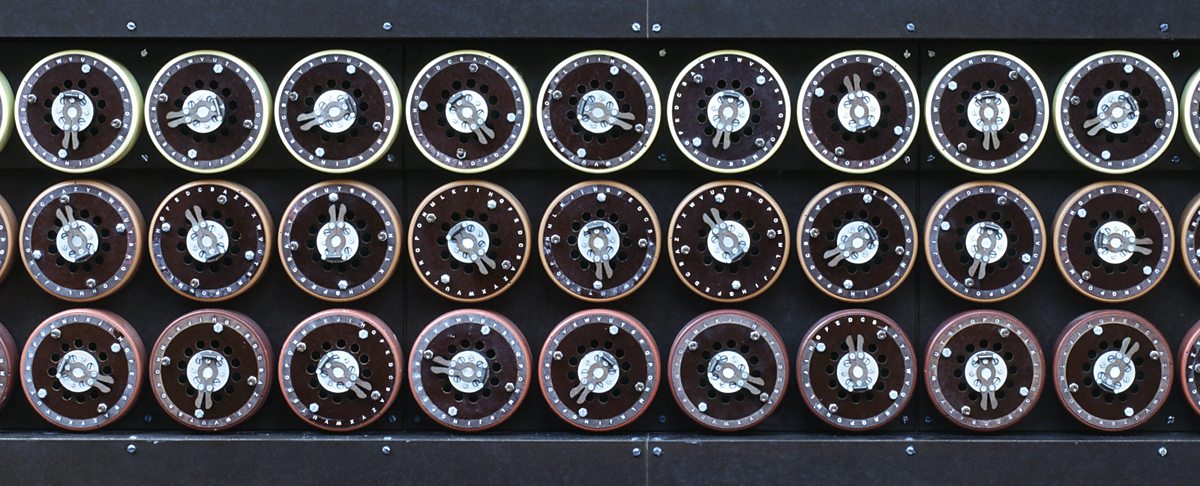The film “The Imitation Game” tells the true story of Alan Turing, a genius mathematician who dedicated his life to code-breaking during World War II, portraying his exceptional computational abilities and profound sense of isolation.
The film brings together Turing’s youth, his wartime work, and his post-war experiences with real emotional depth. As Turing, who often feels alone, starts to connect with his colleagues, viewers can sense his desire for understanding and the slow growth of trust. The way the film portrays Turing’s feelings and the team’s shifting emotions makes it feel like a genuine human story, full of vulnerability and hope.
The film also reveals the intensity of Turing’s inner struggles and the crucial role mathematics played in his code-breaking work. It prompts viewers to reflect on Turing’s life and legacy, leaving a lasting emotional impact.
Synopsis and Analysis of the Film “The Imitation Game”
“The Imitation Game” depicts Alan Turing’s hidden struggles as he devoted himself to cracking the Nazi Enigma code during World War II, while facing government pressure and personal anguish.
The film stands out because it realistically shows Turing’s struggles, including the pressure from the government and his complicated relationships with others. The story focuses on how Turing and his colleagues at Cambridge worked to crack the Enigma code. His unusual way of thinking and the tough relationships he faced bring out strong emotions.
Upon its release, the film was nominated for and won the Academy Award for Best Original Screenplay. It also received numerous other nominations, including for the Golden Globe Awards (72nd/2015) and the British Academy Film Awards (BAFTA/2015).
| Category | Nominee / Work | Result |
|---|---|---|
| Best Picture | The Imitation Game | Nominated |
| Best Director | Morten Tyldum | Nominated |
| Best Actor | Benedict Cumberbatch | Nominated |
| Best Supporting Actress | Keira Knightley | Nominated |
| Best Adapted Screenplay | Graham Moore | Won 🏆 |
| Best Original Score | Alexandre Desplat | Nominated |
| Best Film Editing | The Imitation Game | Nominated |
| Best Production Design | The Imitation Game | Nominated |
Golden Globe Awards (72nd Edition / 2015)
| Category | Nominee / Work | Result |
|---|---|---|
| Best Motion Picture – Drama | The Imitation Game | Nominated |
| Best Actor – Drama | Benedict Cumberbatch | Nominated |
| Best Supporting Actress | Keira Knightley | Nominated |
| Best Screenplay | Graham Moore | Nominated |
| Best Original Score | Alexandre Desplat | Nominated |
British Academy Film Awards (BAFTA/2015)
| Category | Nominee / Work | Result |
|---|---|---|
| Best Film | The Imitation Game | Nominated |
| Outstanding British Film | The Imitation Game | Nominated |
| Best Actor | Benedict Cumberbatch | Nominated |
| Best Supporting Actress | Keira Knightley | Nominated |
| Best Adapted Screenplay | Graham Moore | Nominated |
| Best Editing | The Imitation Game | Nominated |
| Best Production Design | The Imitation Game | Nominated |
| Best Costume Design | The Imitation Game | Nominated |
| Best Sound | The Imitation Game | Nominated |
Alan Turing: The Mathematician Who Cracked the Enigma Code
Alan Turing was instrumental in cracking the Enigma code, enabling key code-breaking efforts for the British government. Benedict Cumberbatch portrays Turing’s anguish and brilliance with depth.

Alan Turing’s Achievements and Influence
Alan Turing profoundly influenced modern computer science, playing a crucial role in breaking Nazi Germany’s Enigma code during World War II. The Imitation Game, starring Benedict Cumberbatch, highlights his remarkable achievements and enduring legacy.
Turing’s new ideas saved many lives and changed technology forever. He did much more than just break codes—he helped create the basics of computer science and today’s digital world. Learning about his life helps us appreciate how much he changed our world.
The BBC provides detailed coverage of his accomplishments and life.

The Process of Decrypting the Enigma Code and Its Difficulty
During World War II, the “Enigma cipher machine” used by the German military was considered the strongest encryption system. So, what kind of machine was it exactly?
Simply put, the Enigma was a somewhat complex typewriter-like device combining a keyboard with gears. Pressing a key caused multiple internal gears (rotors) to randomly rotate, converting letters into different ones. Furthermore, a part called the plugboard swapped letter pairs, making the pattern incredibly complex.

The combination of rotors and the plugboard settings changed daily. The number of possible combinations exceeded one quadrillion! It’s said even modern computers couldn’t solve it in an instant.
As a result, cryptanalysts at the time abandoned manual decryption. However, Alan Turing developed a groundbreaking machine that didn’t try every single combination. Instead, it identified the hidden “pattern” within the cipher and automatically analyzed that pattern.
The Unusual Fate of a Mathematical Genius
Alan Turing was a pivotal figure who significantly contributed to the development of modern mathematics. He conceived the idea of the “Turing machine,” which served as the foundation for modern computers. His ideas were so advanced that many people found them hard to understand.
While the movie focuses on code-breaking, mathematics played an indispensable role in many aspects of the war. For instance, it was used to calculate where to drop artillery shells, and “game theory”—a field used to formulate military strategy—also emerged from mathematics. It was studied as an academic discipline to determine how to allocate resources to win the war.
Moreover, he was homosexual, which was considered a “crime” at the time. Though unthinkable today, this led him to endure an extremely difficult life.
The Code-Breaking That Saved the World
During World War II, Turing set out to break the Enigma, the most sophisticated code machine used by Nazi Germany. People thought it was almost impossible to solve. Still, Turing and his team built a machine like a computer and managed to crack the code.
Their decryption enabled the Allies to predict German military movements, leading to an earlier end to the war.
Incidentally, the Japanese military also used encrypted communications between Japan and the US at the time; however, these were reportedly deciphered by the Americans. Japanese sentences often end with verbs, making patterns easier to read. There’s even a theory that the loss at the Battle of Midway was due to their codes being broken, clearly demonstrating the critical importance of information warfare.
A Tragic Ending, and Restoration of Honor
While Britain greatly utilized Turing’s genius during the war, it also socially destroyed him because of his sexual orientation. Sadly, his honor wasn’t fully restored until long after his death.
Watching the film, I was struck by a profound sense of sorrow for Turing’s loneliness and the injustices he endured. Yet, amid that sadness, there is a complex feeling—recognition that the British government’s decision to persist in supporting him shows both tragic irony and a glimmer of respect for talent in a difficult era.
The appeal of human dramas based on true stories
True stories like The Imitation Game are fascinating because they reveal hidden achievements, such as the challenging task of breaking Enigma and Turing’s personal struggles. His courage and determination make the film stand out.
The film respectfully shows how the government treated him as a person. What makes true-story dramas appealing is how they reveal the achievements of people who might otherwise be forgotten.lm myself prompted me to reflect deeply on many things.
Summary: A true story that resonates. Scholars, too, shaped history.
“The Imitation Game” recounts Alan Turing’s groundbreaking work in breaking the Nazi Enigma code during World War II.
Alan Turing changed history by breaking the Enigma code, but he lived much of his life alone. Benedict Cumberbatch does a great job showing Turing’s struggles. The Imitation Game is more than just a historical drama—it’s a touching look at math, humanity, and the importance of dignity. I highly recommend it.





